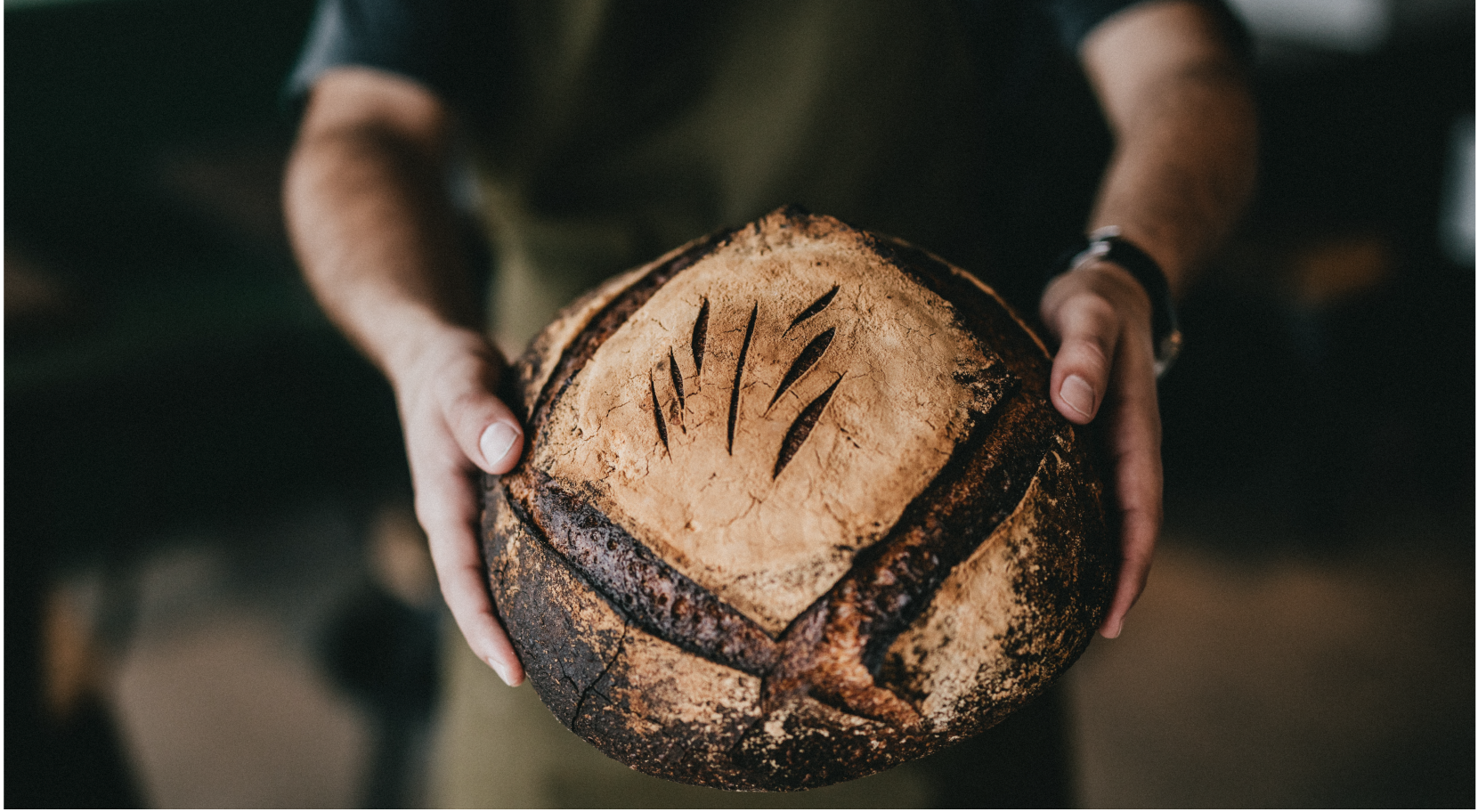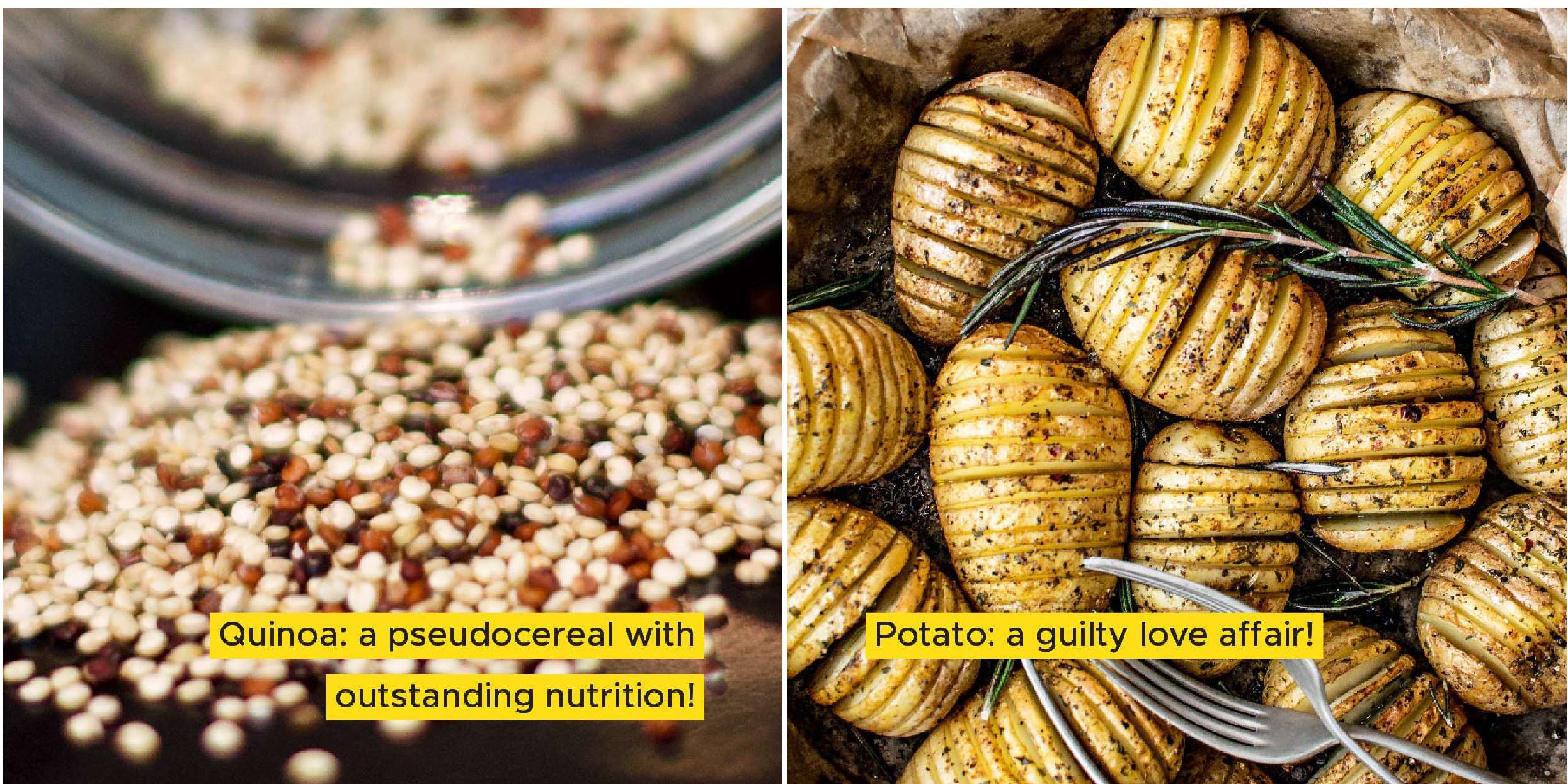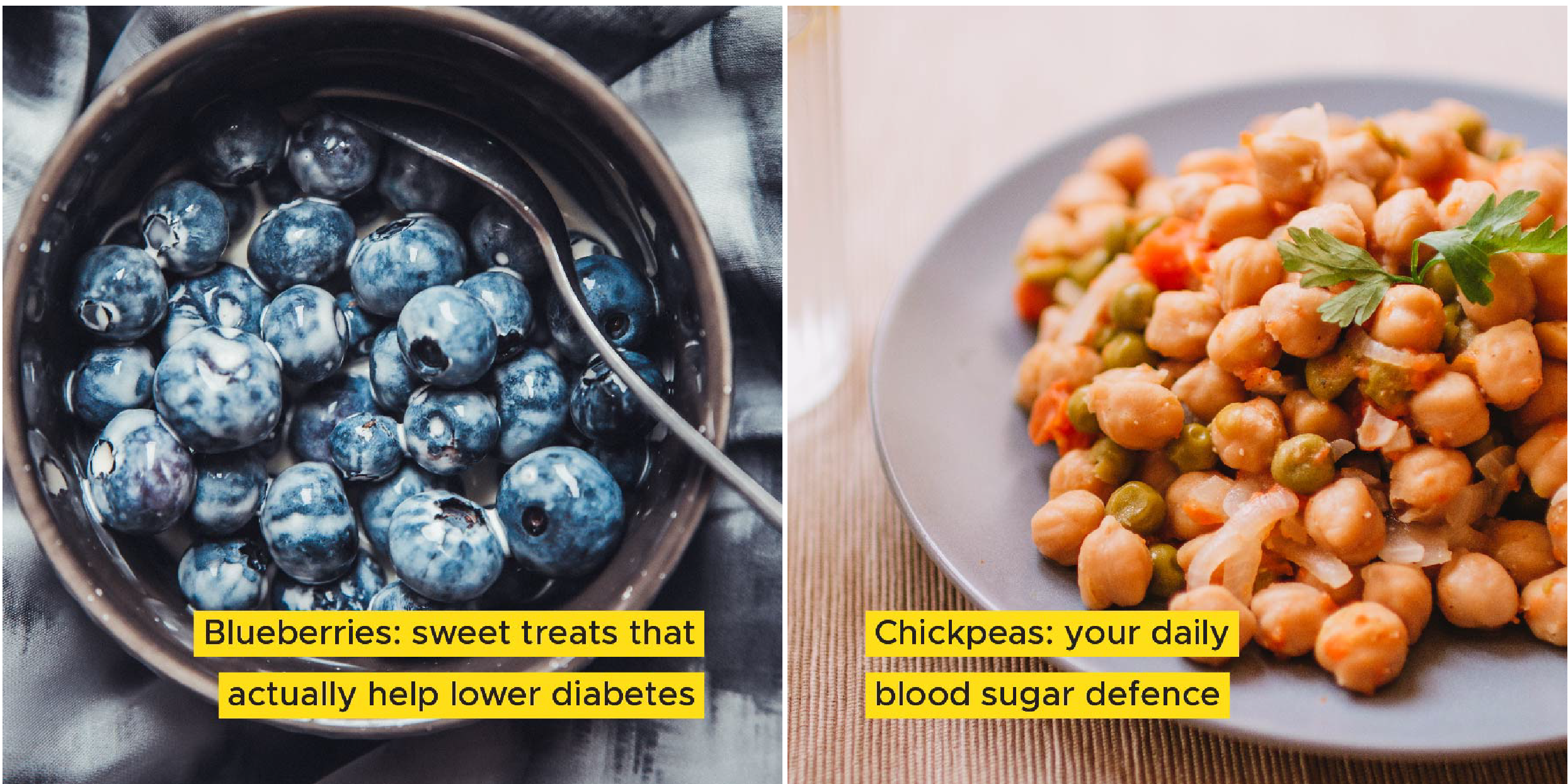Quinoa: a pseudocereal with outstanding nutrition!
Grains are often thought of as the primary contributor to weight gain, and the first to go in low-carb/keto diets. However, not all grains are alike. Refined grains have the germ and bran separated from the starchy endosperm, making it easier to use or cook with but actually leading to higher risks of type II diabetes. On the other hand, whole grains like quinoa have a low glycemic load, leading to inverse correlations with chronic obesity, and cardiovascular diseases. On top of that, it is rich in many other nutrients across proteins, minerals (like manganese and copper), substantial amounts of fiber and omega-3 fatty acids.
Potato: A guilty love affair!
Why do we love to hate potatoes, even as we love to eat them? Yes, its a starchy fellow but it is also full of goodness. 1 cup baked contains 36g of carbohydrates, and a dazzling array of potassium, copper, fiber (mainly in its skin). Most notably, potatoes are rich in vitamin B6 which is involved in hundreds of enzymatic reactions all over the body, from creating amino acids and red blood cells to keeping the nervous system going. When cooked and left to cool, some of the starches turn into resistant starch which conversely help with glycemic control. |





